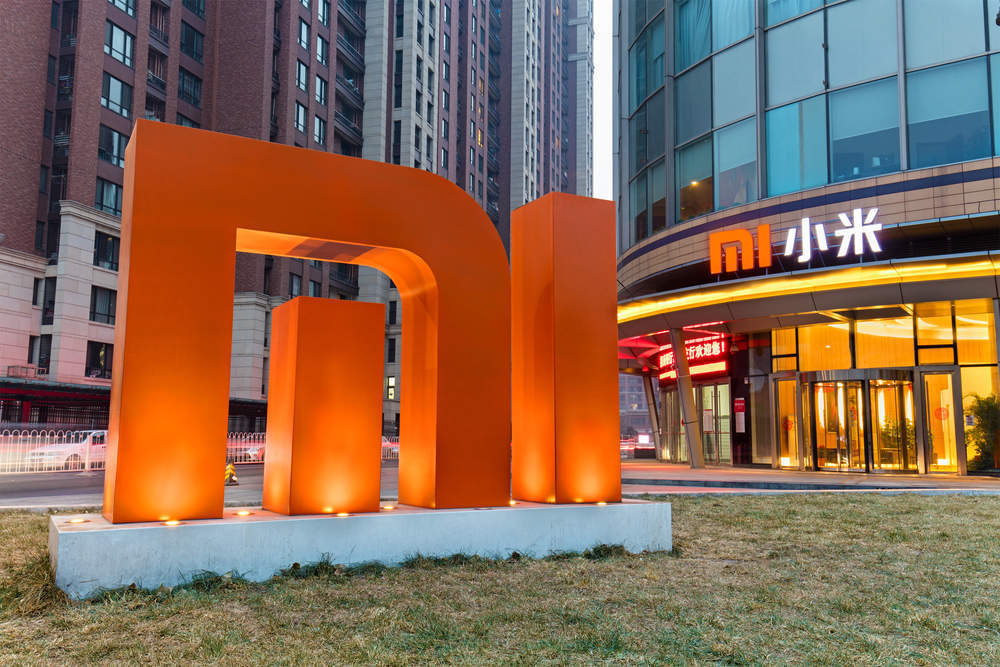
Xiaomi, China’s biggest consumer electronics unicorn, has started taking orders ahead of its proposed initial public offering (IPO) in July.
The company is seeking funds of up to $6.1bn when it lists on the Stock Exchange of Hong Kong next month.
This values the company at somewhere between $53.9bn and $69.8bn, which falls way short of earlier valuations. Xiaomi had been pushing for an IPO valuation of upwards of $100bn. Confusion over Xiaomi’s future plans quickly curbed that.
Xiaomi has found success in the smartphone market as a cheaper alternative to pricey offerings by Apple and Samsung. However, according to research conducted by technology industry analysts Counterpoint Research, the manufacturer makes just $2 for each handset it sells.
Instead, Xiaomi CEO Lei Jun believes that the company’s future success will be in internet services. He hopes to rival Chinese companies like Tencent and Alibaba and US companies like Facebook and Google alike. Yet, 70% of the company’s revenue currently comes from smartphone sales.
The valuation is lower than the company had hoped for. However, the IPO is already looking like it will be a success. Despite the mixed messages about the company’s future, Xiaomi has already persuaded China Mobile Ltd., a leading Chinese telecommunications company, to invest $100m ahead of the IPO.
International interest
Interest in Xiaomi isn’t only coming from China. The consumer electronics brand has caught the attention of US-based tech company Qualcomm. The microprocessor giant has also agreed to invest $100m in the company.
Qualcomm’s investment in China came just days after Google confirmed that it would invest $550m in China’s second largest e-commerce retailer, JD.com, in exchange for a stake in the company.
While the Xiaomi IPO will likely catch the attention of international investors, there are two big stumbling blocks that threaten to turn them off, according to Peter Richardson, Research Director at technology analysts Counterpoint Research.
Richardson told Verdict:
“There is likely to be quite a bit of interest [in Xiaomi shares].
“However, it will likely be tempered by valuation – the banks involved in the IPO have published valuation estimates so way below the rumoured original of $100bn. They’re now expecting the stock to be valued in the range of $65bn to $92bn. However, even at the lower end of this range, Xiaomi still looks like it will be priced at a premium. We think a valuation of between $30bn to $40bn is more realistic. If the shares, once they start trading, decline to this range, you will likely see decent uptake – and governance.
“The founders will have super-voting rights that will mean ordinary shareholders will have only a marginal ability to influence control.”
Needs must
It’s unusual to see a Chinese company go for an IPO, Richardson told Verdict. However, it’s a case of needs must as Xiaomi continues to outgrow the Chinese tech market.
“Xiaomi needs to expand overseas because the Chinese smartphone market has become saturated and is unlikely to grow much for the foreseeable future. International expansion provides for continued growth.”
Xiaomi has already started to see success in the global market. Sales of Chinese handsets have surged in Europe in the first quarter of 2018, as consumers opt for cheaper offerings over the likes of expensive Apple, Samsung and Google phones.
According to research agency Canalys, Samsung and Apple saw shipments decline by 15.4% and 5.4% respectively. While Xiaomi shipped less handsets, the company saw growth of more than 999%, taking a 5.3% share of the European smartphone market.
Those numbers will appeal greatly to investors, as Xiaomi continues to show that it can compete in the big markets with the biggest players. They will also appeal to other Chinese tech companies, who will gain confidence that Chinese companies are capable of breaking into overseas markets.
“For other Chinese companies, overseas expansion allows them to diversify their customer base so they can take advantage of growth opportunities as well as mitigating the risks of having too much exposure to one market – irrespective of how big that market is,” Richardson said.
The first of many?
According to Nicolas Aguzin, chief executive for Asia-Pacific at JPMorgan, Xiaomi could be the first of many Chinese tech unicorns to launch IPOs in Hong Kong.
Hong Kong is proving popular with Chinese companies. Many are hoping to go global by better connecting Beijing’s financial markets with foreign investors.
Speaking to the South China Morning Post, Aguzin said:
“2018 will be a blockbuster year for Chinese unicorns to come to the capital market.
“I think China is leading the global unicorn race ahead of the US.”
The likes of Didi Chuxing, DJI Innovations and Ant Financial should follow Xiaomi’s lead sometime soon.
Ride-hailing company Didi Chuxing is already in talks to list later this year. The company is seeking a valuation of $80bn. DJI Innovations, a leading drone manufacturer, is reportedly seeking a $15bn valuation. Likewise, Ant Financial, the world’s leading fintech company, recently overtook Uber to become the world’s highest-valued private tech company after securing a $150bn valuation in a recent funding round. An IPO will likely follow within the next year.
Meituan Dianping, a Chinese app that is sort of like Groupon, TripAdvisor and Uber Eats combined (It also owns the leading global bike-sharing startup Mobike), is considering an IPO with a target valuation of $60bn in the near future.
If that is the case, 2018 will be a huge year for Chinese tech.
Meanwhile, it will likely be a quiet one for the US. Since Snap Inc. went public in March 2017, there has been few major tech IPOs.
Spotify went public through a direct listing earlier this year. Uber is set to go public. However, CEO Dara Khosrowshahi has said that won’t be until at least 2019. The same goes for online discovery board Pinterest after it failed to meet its 2017 revenue projections.
China’s rise
“China has a vibrant tech sector with many large and powerful companies,” Richardson explained.
Consumer tech is currently having its day, with companies like Huawei and Xiaomi finding their feet in the international smartphone market.
However, the nation has plenty more to offer. China’s encouragement of entrepreneurship is beginning to pay off. Apps like Good Doctor, which allows patients to make medical appointments and purchase medication through their smartphone, have scored big on the stock exchange in recent times.
Internet of Things (IOT) and artificial intelligence are just some of the other areas where China is finding success.
Richardson told Verdict:
“There are a large number of Chinese companies involved in artificial intelligence. This has widespread application and appeal internationally, so could potentially be the basis of one or more IPOs.”
Richardson singled out Cambricon Technologies as the perfect example of what’s still to come from China’s tech scene. The company develops artificial intelligence smart chips. These serve as the core processor for cloud servers, smart terminals and autonomous robots. The company recently raised $200m in funding, which gifted the company a valuation of $2.5bn.
Just like Cambricon, there are plenty of other Chinese companies doing innovative things that are bound to find success in the global tech market, as the East Asian nation continues to put pressure on the US for tech dominance.







